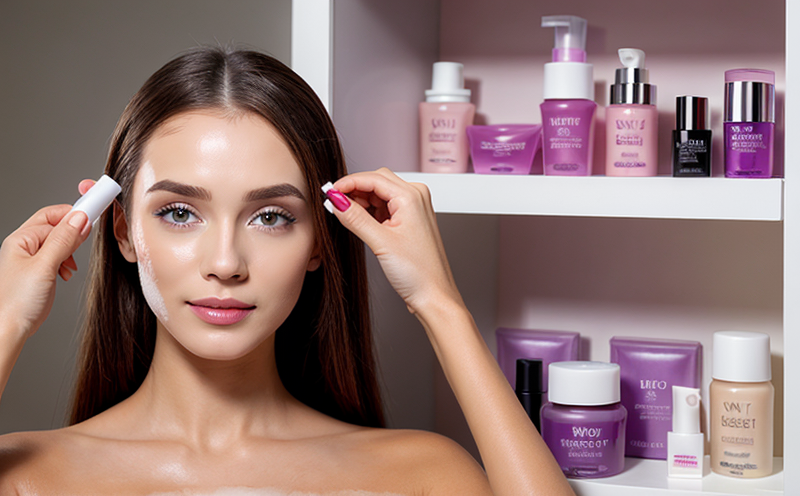Halal Certification Testing of Personal Care Products
Halal certification testing is a crucial step in ensuring that personal care products meet the strict dietary and religious standards required by Muslim consumers. This service ensures that the ingredients used are permissible according to Islamic law, thus allowing for safe consumption or use without violating any religious prohibitions.
The Halal certification process involves rigorous analysis of ingredients to ensure they comply with Shariah (Islamic law) principles. This includes checking for the absence of prohibited substances such as alcohol, pork products, and certain animal by-products. The testing also ensures that the manufacturing process adheres to halal standards.
For quality managers and compliance officers, this service is essential in maintaining a brand's reputation among Muslim consumers. Halal certification can significantly enhance market access for personal care brands aiming to cater to the growing halal consumer base globally. For R&D engineers and procurement teams, it ensures that product development and sourcing align with halal standards.
The testing process involves several steps. Initially, a detailed review of the product's formulation is conducted to identify any potential non-halal ingredients. This includes checking against international standards such as ISO 22005 for food safety management systems which also apply to cosmetics and personal care products.
Once identified, further testing might be required on specific components or additives. For instance, preservatives like parabens may need to be analyzed for their halal compliance. This involves checking the source of raw materials and ensuring that they are derived from permissible sources.
The final step in the certification process is a review by an independent halal certification body which verifies all documentation and ensures the product meets the required standards. The result is a certificate or label indicating that the product has been certified as halal, thereby gaining acceptance in Muslim-majority markets.
Why It Matters
The importance of halal certification testing cannot be overstated for companies operating in the consumer products sector. In a global market where religious dietary restrictions are becoming increasingly influential, meeting these standards is not just a legal requirement but also a strategic marketing tool.
According to a report by Markets and Markets, the global personal care industry is expected to reach $481.6 billion by 2027, with significant growth in the Middle East and North Africa (MENA) region. The demand for halal-certified products from this region underscores the market's potential.
For companies aiming to expand into these markets, obtaining a halal certification can be a decisive factor. It not only opens doors to new customer segments but also strengthens brand loyalty among existing Muslim consumers. Compliance with halal standards is seen as a sign of respect and inclusivity towards diverse consumer bases.
Moreover, non-compliance with these standards can lead to significant financial losses. Penalties for selling non-halal products in certain regions are strict, and the negative publicity from such incidents can severely damage brand reputation. Therefore, investing in halal certification testing is a prudent business decision.
Competitive Advantage and Market Impact
- Enhanced market access to Muslim-majority regions such as the Middle East and North Africa.
- Promotion of brand image and reputation among a growing consumer base.
- Increased sales opportunities due to higher consumer confidence in halal-certified products.
Use Cases and Application Examples
| Product Type | Description | Halal Certification Requirements |
|---|---|---|
| Sunscreen | A lotion or spray that protects the skin from ultraviolet light. | Ingredients such as oxybenzone and avobenzone should not be used; instead, natural alternatives are preferred. |
| Baby Shampoo | A mild cleanser for infants' skin. | No synthetic fragrances or colorants should be present. Ingredients must be gentle and safe for sensitive skin. |
| Conditioner | A product used to add moisture back into dry, dull hair. | Ingredients like mineral oil may need to be replaced with natural oils such as coconut or olive oil. |





